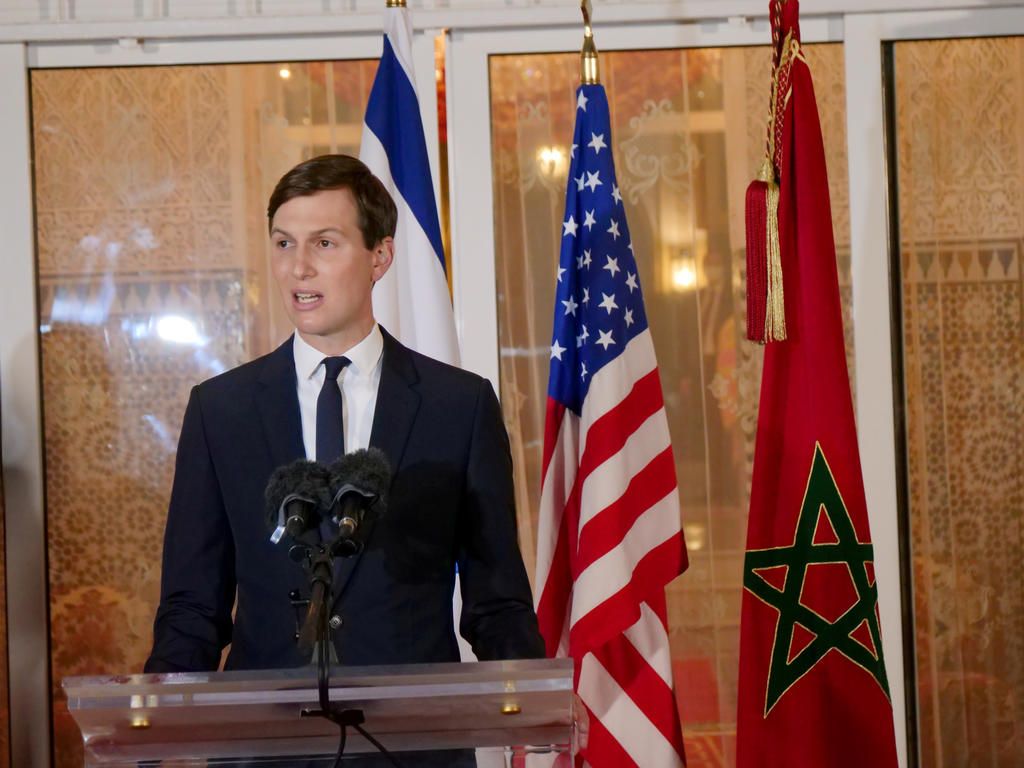The Trump administration races to cement its legacy in the Middle East

A few minutes every morning is all you need.
Stay up to date on the world's Headlines and Human Stories. It's fun, it's factual, it's fluff-free.
President Donald Trump has sought to strengthen alliances between Israel and other countries in the region, de-escalate tensions between the United States and Iran, and bring US troops home.
With President-elect Joe Biden set to enter the White House on January 20, the Trump administration has been racing to solidify its foreign policy goals in the Middle East.
President Donald Trump has sought to strengthen alliances between Israel and other countries in the region, de-escalate tensions between the United States and Iran, and bring US troops home. The actions the Trump administration takes in the next couple of weeks will likely have serious implications for the incoming Biden administration.
Pro-Israel policies
After helping to negotiate peace agreements between Israel and other Middle Eastern states, the Trump administration remains active in Israel. At least four US officials have visited the country in the last month, with Secretary of State Mike Pompeo traveling there earlier in November. Pompeo became the highest-ranking official to visit Israeli settlements along the West Bank, including the Golan Heights.
Standing atop the Golan Heights, Pompeo said, “You can’t stand here and stare out at what’s across the border and deny the central thing that President Donald Trump recognized,” in reference to Trump’s recognition of Israel’s sovereignty over the area.
The Syrian government rebuked Pompeo’s visit and comments. “Pompeo’s visit is a provocative step before the end of the Trump administration’s term,” the Syrian foreign ministry said in a statement posted by state news agency SANA announce, “and a flagrant violation of the sovereignty of the Syrian Arab Republic.”
In recent weeks, White House adviser Jared Kushner led a delegation to Israel and Morocco to discuss a normalization deal between the two countries, a deal which Kushner helped broker. The negotiation promises that the US will recognize Morocco’s sovereignty over Western Sahara in exchange for Morocco setting aside hostilities against Israel.
Bringing troops home
Before running for president, Trump argued against troop deployment in the Middle East. In 2013, he tweeted, “Our troops are being killed by the Afghanis we train and we waste billions there. Nonsense! Rebuild the USA."
After deploying 3,000 additional troops to Afghanistan in 2017, Trump switched gears. On October 7 of this year, Trump tweeted he would pull all 4,500 troops home from Afghanistan by Christmas. This directly contradicted many of Trump’s allies, including his own Defense Secretary, Mark Esper, who released a memo expressing concern that the conditions in Afghanistan were not right for a full troop evacuation. Trump later fired Esper via tweet.
Senate Majority Leader Mitch McConnell also warned against pulling troops out of the Middle East too quickly, stating, “A rapid withdrawal of US forces from Afghanistan now would hurt our allies and delight the people who wish us harm.”
The Taliban praised Trump’s decision to withdraw. Early in 2020, the Trump administration and Taliban leadership negotiated a peace agreement that included a cease-fire, withdrawal of foreign forces, intra-Afghan negotiations, and counterterrorism assurances.
With time running out to keep his 2016 campaign promises, The New York Times reported that Trump plans to withdraw more troops from Afghanistan, Iraq, and Somalia before his term is over.
Iranian tensions to continue
On November 20, Iran’s top nuclear scientist Moshen Fakhrizadeh was shot and killed. Fakhrizadeh was thought to be the driving force behind Iran’s nuclear weapons program. An American official attributed the attack to Israel, with Iranian Foreign Minister Javad Zarif tweeting, “Terrorists murdered an eminent Iranian scientist today. This cowardice—with serious indications of Israeli role—shows desperate warmongering of perpetrators.”
In response to the assassination, the conservative-led Iranian Parliament passed a law that would ramp up enrichment of uranium, reducing the time it would take to create weapons-grade fuel. Despite his disagreement with the law, President Hassan Rouhani’s government is obliged to carry it out. He stated, “The government does not agree with this legislation and considers it damaging for diplomacy.”
This comes after Trump had to be dissuaded from launching attacks to halt Iran’s nuclear program. During his presidency, Trump has pulled out of the nuclear deal with Iran, instead choosing to impose sanctions on the country to discourage them from developing nuclear weapons.
Whatever additional aims Trump might have with regard to Iran, and the Middle East more generally, time is running out for his administration to see them through.
Have a tip or story? Get in touch with our reporters at tips@themilsource.com




Comments ()